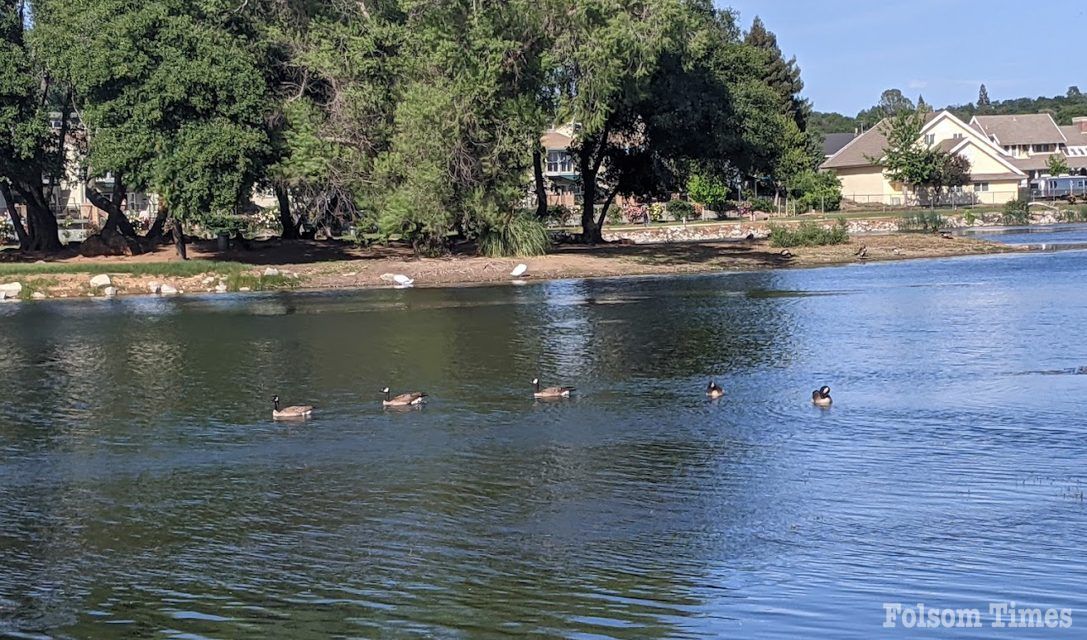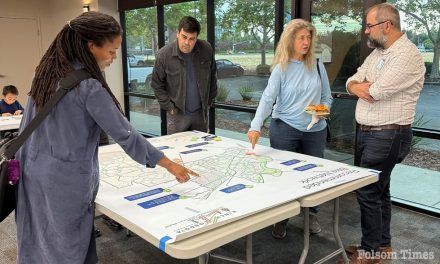CAMERON PARK — Officials have confirmed that bird flu is behind a recent wave of waterfowl deaths at Cameron Park Lake, prompting an ongoing multi-agency response and new public health advisories in the El Dorado County community.
Laboratory results received October 27 confirmed the presence of Avian Influenza in multiple Canada geese found at the lake, according to the Cameron Park Community Services District (CPCSD). The confirmation followed several days of investigation after rescuers and park staff reported a sharp increase in sick and dying birds.
Before the test results were finalized, environmental experts had initially suspected avian botulism or algae-related toxicity due to stagnant water conditions and warm weather. Out of precaution, the district installed warning signs on October 23 advising the public to avoid the water and limit contact with wildlife.
“We are taking every precaution necessary to protect our residents, pets, and local wildlife,” said Maurice Johnson, interim general manager of CPCSD. “Our team is working closely with county and state agencies to monitor the lake daily and will continue to keep the community informed as new information becomes available.”
District crews, along with the El Dorado County Health Department, Sierra Wildlife Rescue, California Wildlife Encounters, and the California Department of Fish and Wildlife (CDFW), continue daily patrols to remove deceased birds, safely dispose of carcasses, and track lake conditions. Wildlife rescuers say the toll on local birds has been significant.
“We found 14 birds, five which were already dead. And the rest I’ve actually had to euthanize,” said Leslie Ackerman of California Wildlife Encounters. “It’s been hard hit out here.”
CDFW spokesperson Peter Tira confirmed that two of the geese collected from Cameron Park Lake tested positive for Avian Influenza. “Those birds, some of them are diseased, and they bring that in with them,” Tira said. “They’re social, they congregate in large flocks, and so it spreads.”
The virus, which first appeared in Northern California wild birds in 2022, tends to resurface each migration season when large flocks of geese, ducks, and other species gather in communal water sources. Cameron Park Lake is a regular resting point for Canada geese and other migratory birds, making it especially vulnerable to seasonal outbreaks.
So far, the current outbreak appears confined to El Dorado County. No bird flu-related deaths have been reported in neighboring Sacramento or Yolo Counties, but wildlife officials are closely watching for spread along the migratory corridor through the Sacramento Valley.
Health experts emphasize that the risk to humans remains very low. However, Avian Influenza can spread through contact with infected birds or contaminated surfaces, and pets can also be exposed if they interact with affected wildlife. Residents are urged to avoid touching or moving sick or dead birds, keep dogs and other pets away from the water, and report any unusual wildlife behavior immediately.
Officials note that Cameron Park Lake isnota source of municipal drinking water, and there is no risk to the local water supply. Recreational walking and park use remain permitted around the lake, but all direct water access is restricted while monitoring continues. Signs will remain posted until state and county agencies determine that the virus has subsided.
Bird flu outbreaks were first detected in California in 2022 and have since affected migratory waterfowl, raptors, and some backyard poultry across multiple counties. Wildlife agencies expect continued detections as fall migration brings new bird populations into the region.
Residents who observe dead or ill waterfowl should contact the CPCSD, El Dorado County Animal Services, or the Department of Fish and Wildlife. Reports can also be made directly to the state wildlife hotline at 916-358-2790.
The CPCSD said it will continue to provide updates to the community as new information becomes available.
Copyright © 2025, Folsom Times, a digital product of All Town Media LLC. All rights reserved. No portion of this publication may be reproduced, distributed, or transmitted in any form or by any means, without the prior written permission of the publisher.




